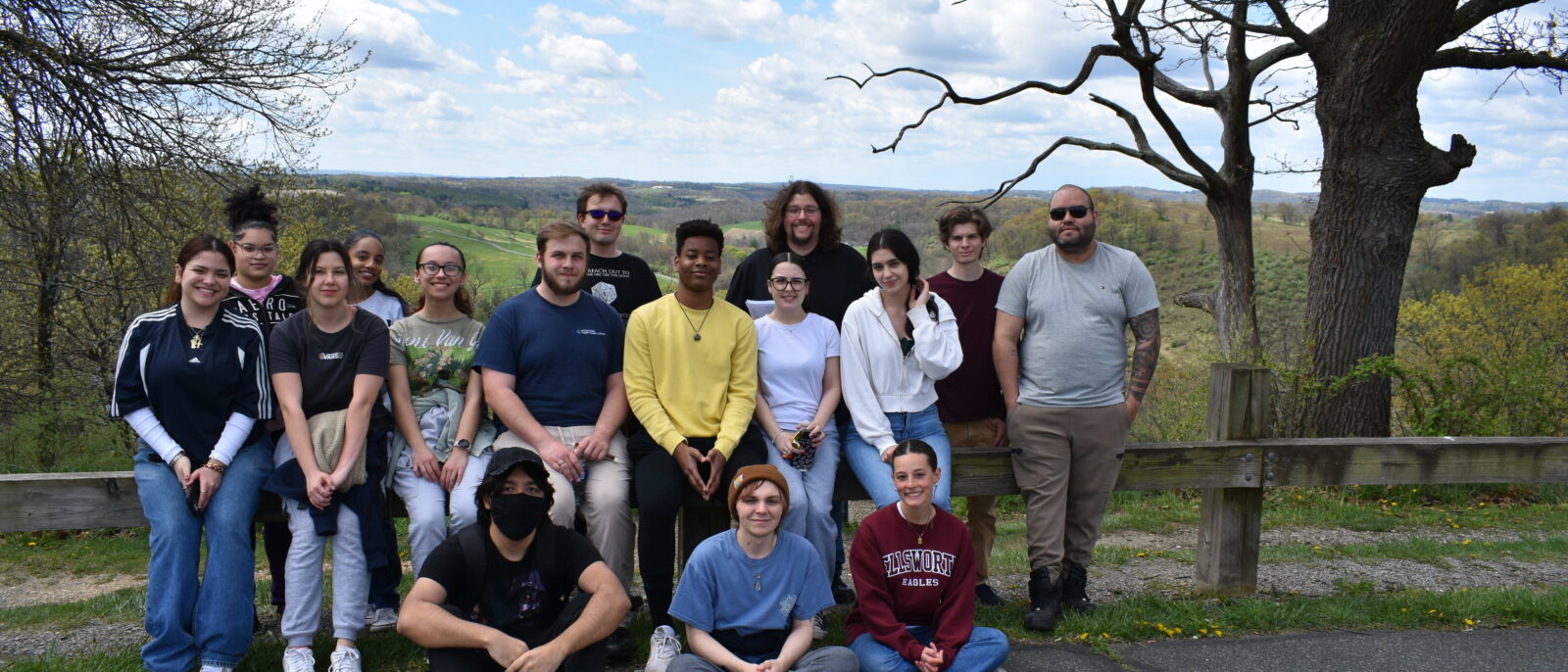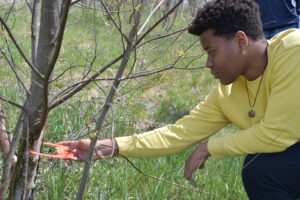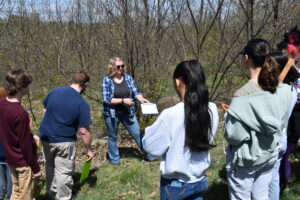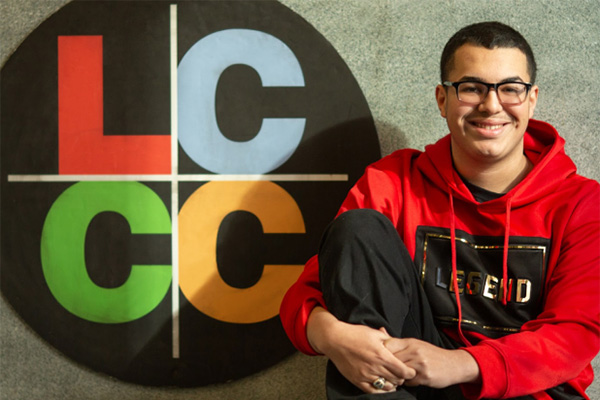Making Their Mark in the Field

Students in Associate Professor Andrew King’s General Biology II course are immersed in an experiential learning project that is paying big dividends not only for themselves, but also for the public at large. Not to mention a grove of trees. The unique opportunity allows students to conduct research in the field for Wildlands Conservancy of Emmaus. Perhaps most importantly, the students’ work is helping to solve a vexing ecological problem.
As a keystone species, American chestnut trees played a vital role in our country’s history. Their wood had been used for construction and burned for heat. Their seeds fed livestock, and provided shelter, food, and resources for a variety of animals. But with the advent of international trade, fungal pathogens and destructive ambrosia beetles were unknowingly introduced into our ecosystem. Their impact was profound, decimating whole forests of these essential trees. When it was discovered that Chinese chestnut trees resisted the fungal blight, researchers attempted to develop a hybrid of the Chinese and American chestnuts. The research is ongoing, but it includes a collaboration between Wildlands Conservancy and LCCC students.
 Wildlands Conservancy is dedicated to responsible stewardship of natural areas and waterways. The conservancy established its chestnut tree research site on a four-acre plot in the Trexler Nature Preserve in Schnecksville, the largest park in Lehigh County—and conveniently adjacent to Lehigh Carbon Community College. “We wanted to identify additional partners to help us with some of the long-term efforts there, and LCCC was a natural fit,” said Kate Ebel, senior restoration ecologist at Wildlands Conservancy.
Wildlands Conservancy is dedicated to responsible stewardship of natural areas and waterways. The conservancy established its chestnut tree research site on a four-acre plot in the Trexler Nature Preserve in Schnecksville, the largest park in Lehigh County—and conveniently adjacent to Lehigh Carbon Community College. “We wanted to identify additional partners to help us with some of the long-term efforts there, and LCCC was a natural fit,” said Kate Ebel, senior restoration ecologist at Wildlands Conservancy.
Ebel says that LCCC students have been involved with the chestnut tree project from the beginning, helping the conservancy plant the first run of trees in 2012. The information that the students gather today is sent by the conservancy to the American Chestnut Foundation to be used in their multi-state research program on combating the blight.
LCCC students do fieldwork twice a year at Trexler for this research project. Every student enrolled in the General Biology II course, between 60 and 90 pupils, is required to participate. For the majority of the students, the excursion to Trexler and collecting data outdoors was an eye-opening experience. “They’re always apprehensive at first, because they don’t have an idea of what fieldwork means. A lot of times, they confuse it and think it’s yardwork—no. Instead of being in the comfort of our labs, we’re going to see what people do who are out in the field gathering these measurements. This is a great example of how academics and community can come together,” King said.
Students look for and record data such as a tree’s height, estimate its life cycle stage, and whether trees have been attacked by invasive species. Back in the classroom, King evaluates student performance on the quality of their data collection process and whether they followed proper research protocols.
 With more than 1,000 trees to assess in the chestnut orchard at Trexler, it’s a daunting task for Ebel’s two-person department. The additional assistance of LCCC students makes the job more manageable and reinforces the school’s ties with the community. “They have good attention to detail and it fits in well with what they’re learning in their classes. Having the students assist really allows us to collect high-quality data without so much of a time commitment on our part,” Ebel says. “We’re very pleased with the partnership and we’re excited to continue it in the future.”
With more than 1,000 trees to assess in the chestnut orchard at Trexler, it’s a daunting task for Ebel’s two-person department. The additional assistance of LCCC students makes the job more manageable and reinforces the school’s ties with the community. “They have good attention to detail and it fits in well with what they’re learning in their classes. Having the students assist really allows us to collect high-quality data without so much of a time commitment on our part,” Ebel says. “We’re very pleased with the partnership and we’re excited to continue it in the future.”
The students’ contributions will certainly help researchers in their efforts to stem deforestation and perhaps restore the American chestnut population to prominence. Beyond that laudable goal, however, students are also acquiring practical transferable skills that will help them stand out to potential employers. “We really wanted to make sure the students got experience with research, [something] that will allow them to apply the theoretical material they learned in lecture in a real-world setting,” King said.
For more information on science programs, visit the website.

